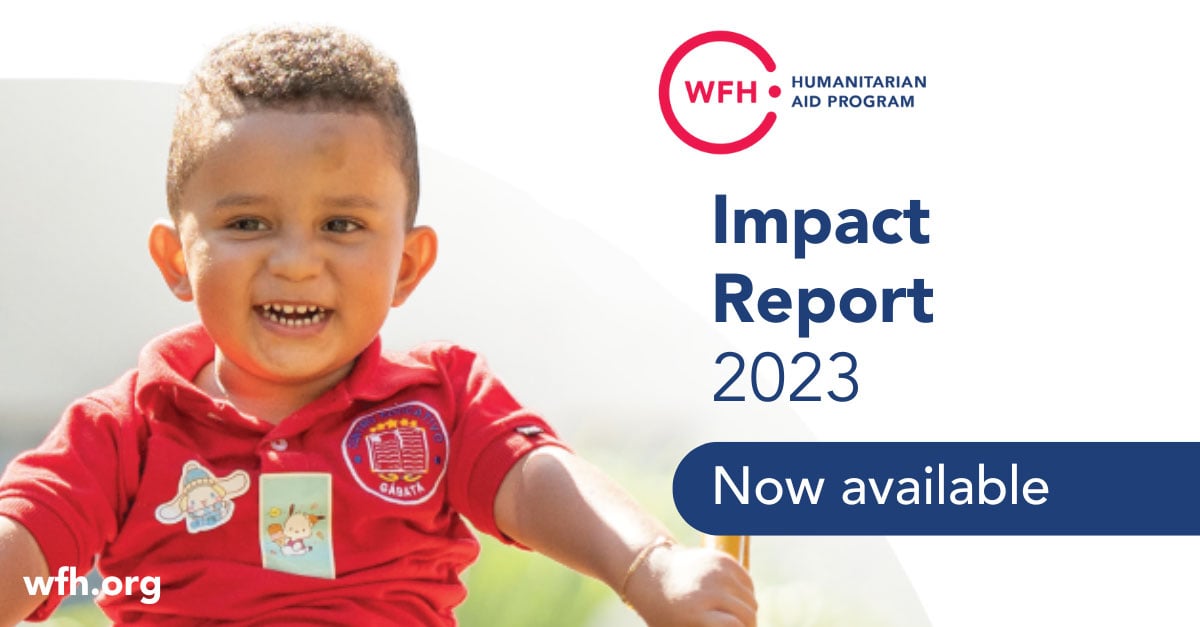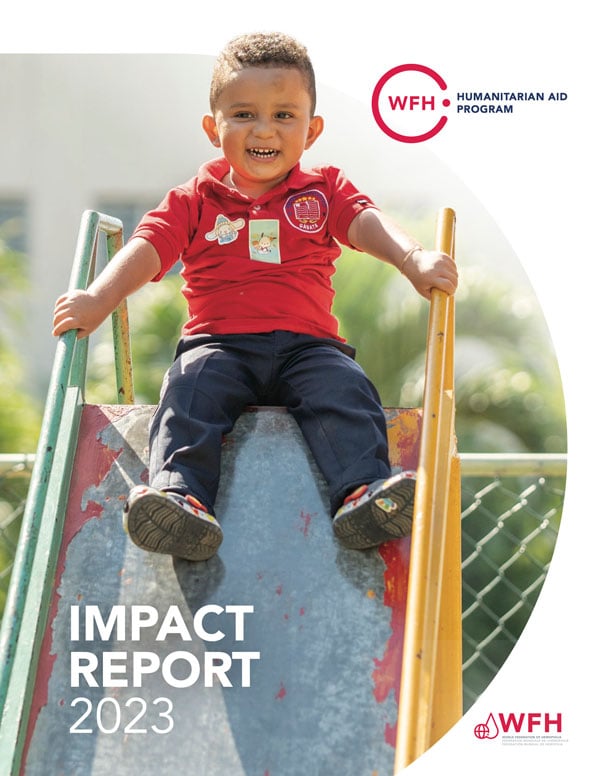The WFH Humanitarian Aid Program supports countries around the world by providing them with predictable treatment product donations, education, training, and government lobbying assistance. All of this is done with one objective in mind: to help countries along their journey to sustainability in inherited bleeding disorders care.
In 2023, the Program again delivered life-changing support:
- 4,260 patients on prophylactic treatment
- 265 million IUs distributed
- 15,500 people with inherited bleeding disorders (PWBDs) treated
- 30,598 acute bleeding episodes managed
- 1,768 surgeries performed
All of these successes were made possible by the dedication of our volunteers, staff and the commitment of our partners: WFH national member organizations (NMOs), hemophilia treatment centres (HTCs), healthcare professionals (HCPs), governments, donors, members of the WFH and WFH USA boards, and our global inherited bleeding disorders community.
To read the WFH Humanitarian Aid Program Impact Report 2023, click here. To find out more about the WFH Humanitarian Aid Program, click here.
About the WFH Humanitarian Aid Program
The WFH Humanitarian Aid Program improves the lack of access to care and treatment by providing much-needed support for people with inherited bleeding disorders in developing countries. By providing patients with a more predictable and sustainable flow of humanitarian aid donations, the WFH Humanitarian Aid Program makes it possible for patients to receive consistent and reliable access to treatment and care. None of this would be possible without the generous support of Sanofi and Sobi, our Founding Visionary Contributors; Bayer, CSL Behring and Roche, our Visionary Contributors; Grifols, our Leadership Contributor; and Takeda and Japan Blood Products Organization, our Contributors. To learn more about the WFH Humanitarian Aid Program, visit www.treatmentforall.org.














